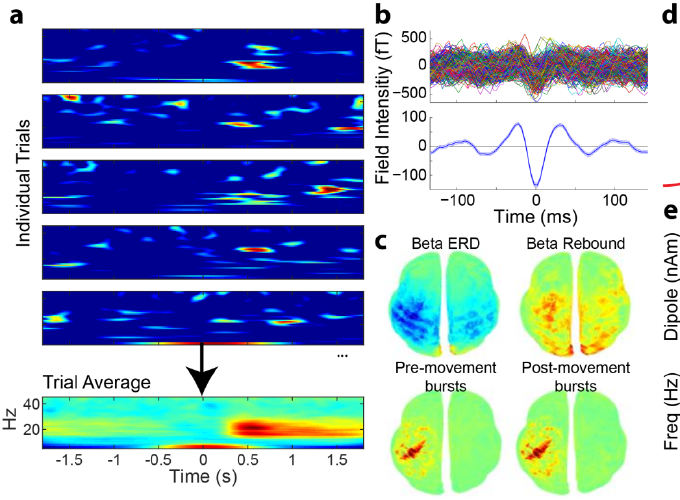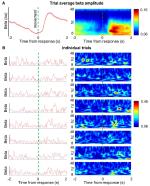It has recently become apparent that oscillatory beta activity actually occurs in discrete transient bursts, and that the summation of short-lasting, high-powered bursts of activity only appear to be sustained oscillations when averaged over multiple trials. This renders previous theories of beta activity’s functional relevance, which involve slow changes of oscillatory power, untenable. However, this insight provides the exciting opportunity to examine beta activity on a trial-by-trial basis rather than in aggregate, and directly relate it to motor behavior.
Photo by rawpixel on Unsplash
Beta bursts
 Photo by rawpixel on Unsplash
Photo by rawpixel on Unsplash
Beta bursts
Publications
Human motor cortical beta bursts relate to movement planning and response errors
Motor cortical beta activity (13–30 Hz) is a hallmark signature of healthy and pathological movement, but its behavioural relevance …


